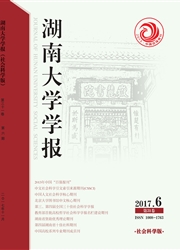

 中文摘要:
中文摘要:
吴简中的“步侯”、“吕侯”,分别为临湘侯步骘、番禺侯吕岱的封爵称谓。这种在封爵称谓中使用受封者姓氏的情况,秦汉时期还极为少见。但是到了魏晋南北朝时期,有逐渐普遍化的倾向。王爵、公爵、侯爵甚至男爵的封爵称谓中,都有使用受封者姓氏的现象。此现象在南、北政权中都有存在。这种现象既是此时期世家大族强大、家族姓氏受到重视的社会现实的反映,也会进一步推动姓氏在社会等级识别中所发挥的作用。与家族相关的、带有私有属性的姓氏,其使用范围从官职扩展到封爵等国家公器上,说明家族等私人势力对国家事务影响的增强。
 英文摘要:
英文摘要:
The record of "Bu Hou" and "Lv Hou", which appeared in the bamboo slips of Wu State, refered to the peerage appellation of Linxiang Hou Bu Zhi and Panyu Hou Lv Dai respectively. Using the feoffee~s surname as the peerage appellation was seldom beheld in the period of Qin and Han dynasties, but it was popularized gradually when it came to Wei-Jin and the Southern and Northern Dynasties. The phenomenon of using the feoffee~s surname as the peerage appellation occurred among king, duke, marquis and even baronage, and it was carried out by both of the southern and northern governments. This phe- nomenon reflected the strength of powerful clans and the significance of family surnames at that time, and it was helpful to promote the influence of surname on the difference of social classes. Surname, which was related to clans and private, was used as the peerage appellation by the government, and it suggested that the personal power like clans had more and more influence on the national affairs.
 同期刊论文项目
同期刊论文项目
 同项目期刊论文
同项目期刊论文
 期刊信息
期刊信息
